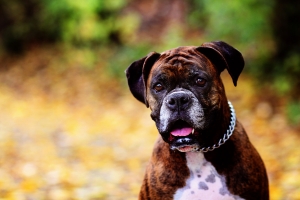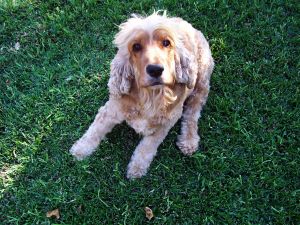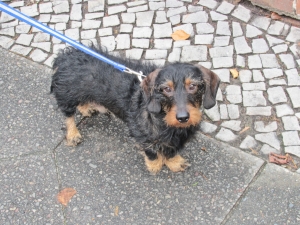 Many dog owners understand the fear and frustration that comes with leaving your dog away for a few hours. Is he going to get lonely? Will he tear through the trash … the couch? There are a lot of what-ifs involved when we leave our dogs, but imagine if you had to leave your dog for months at a time.
Many dog owners understand the fear and frustration that comes with leaving your dog away for a few hours. Is he going to get lonely? Will he tear through the trash … the couch? There are a lot of what-ifs involved when we leave our dogs, but imagine if you had to leave your dog for months at a time.
That’s the sad reality of soldiers across America, who, when deployed, have to bid their best friends a temporary farewell. How can soliders prep their dogs (and themselves) for this emotional event?
It’s you, not them
Your dog loves you, and I hope that this doesn’t make you think otherwise. But you’ll miss him far more than he’ll miss you. Yes, he misses you when you’re gone, but most of all he misses the security and normalcy of routine that disappears alongside you.
The best way to help your dog cope with your absence is to introduce him to what soon will be his new routine, long before you’re gone. What exactly does that mean? It means inviting your house guest and soon-to-be doggie sitter to your home as far as a few months prior to your deployment, if possible.
If you know you won’t have the luxury of that kind of time, but also know that deployment is an inevitability, still designate someone as your honorary doggie sitter, and invite him and her into your dog’s life as frequently as possible.
It’s important to prepare for your departure. You should know whether your dog will stay at your home or go elsewhere. If he does go elsewhere (or if your “deployment preparation list” includes the potential of his staying elsewhere), then make sure your dog spends positive, quality time at that location, long before you actually leave. Being able to spend time with you at this place will help him realize it’s safe and secure.
If possible, have him stay over for a night, but not until he’s become comfortable there.
Your voice. Your stuff
Another way to help your dog cope with your long absence is to leave mementos of you behind. Pieces of clothing that have your scent will go a long way toward keeping your dog happy and feeling comforted. If you’re feeling up to it, record your voice for him to be played once in a while (perhaps at dinner time, if you usually give him a command like “dinner!”).
Find a caretaker you can trust
The hardest part about leaving your dog is not that your dog will miss you, but that you’ll miss your dog. There’s nothing you can do about that. You’re far more aware of time than he is, so you’ll be much more affected by the long absence. The one thing you can do is leave your dog in good hands. Your dog’s caretaker shouldn’t just be the first person you know who says yes. Dogs are like kids – they’re adorable when they’re someone else’s. They can become a real pain when they’re your own.
Your doggie sitter ideally will have experience with dogs, and will understand the importance of exercise, boundaries, and affection. Sticking to a routine is important for your dog, so it’s best not to trust a caretaker who can’t handle that kind of day-to-day obligation.
Don’t overlook the importance of finding the right sitter. You’ll still miss your dog, but at least you know he’s in good hands.
There are a lot of reasons why we miss our dogs when we’re away. One reason is that the relationship we have with our dogs is deeply rooted in an unconditional love like no other. But another reason is because we tend to feel guilty. At least with our friends and family they know why we’re gone. They know when we’ll come back. And they can stay in touch with us through letters, phone calls and more.
But we think our dogs have no idea why we left. We fear they assume we abandoned them. But even dogs who’ve been abandoned in the past won’t think like that, especially if you provide them with a loving temporary home in the meantime.
Then, when you come home, it’ll be like no time has passed at all.





